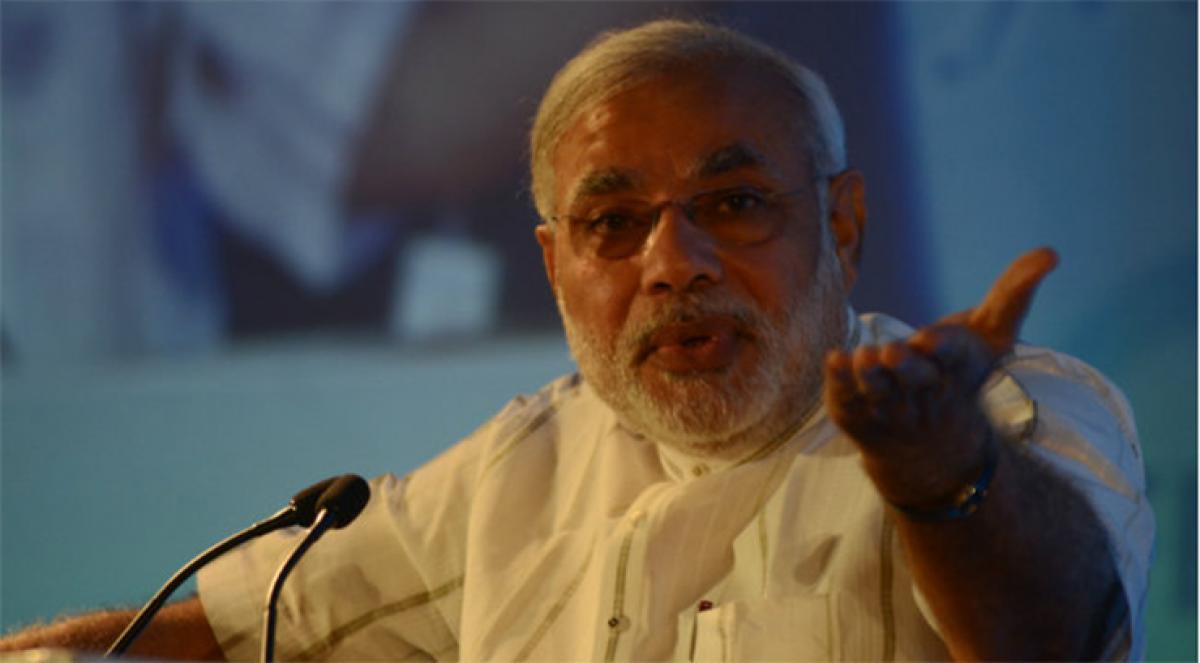Live
- Omar Abdullah Urges Congress To Earn INDIA Bloc Leadership Role
- Yogi Adityanath Contrasts Historical And Modern Treatment Of Workers In India
- Historic Temple In Sambhal Reopens After 46-Year Closure Following 1978 Riots
- Officials directed to work for deeper reach of guarantees
- Delay In 'One Nation, One Election' Bills Introduction Announced
- Exhilarating ‘Benchmark’ of Venkat Changavalli
- Development activities worth `30 cr launched in Puthalapattu constituency
- Allegations against KTR baseless: BRS leader
- Megastar Chiranjeevi to Visit Allu Arjun’s Residence at 12 PM Today
- Nilima Rane: Trailblazer in Nursing
Just In

Narendra Modi\'s One Person Rule Similar To Indira Gandhi During Emergency. Recalling the days of the Emergency, senior journalist Kuldip Nayar on Thursday said former prime minister Indira Gandhi had become the holder of \'one person rule\' and added that something similar is happening with incumbent Narendra Modi now.
New Delhi: Recalling the days of the Emergency, senior journalist Kuldip Nayar on Thursday said former prime minister Indira Gandhi had become the holder of 'one person rule' and added that something similar is happening with incumbent Narendra Modi now.
.jpg)
"First we didn't understand what Emergency was, when we did, we realized that power shifted. Democracy suffered. Mrs. Gandhi became holder of " one person rule". Now something similar is happening with PM Modi," Nayar told ANI.
Former prime minister Indira Gandhi had imposed emergency in the country on June 25, 1975 after the Allahabad High Court and subsequently the Supreme Court found her election to the Lok Sabha 'null and void'. Formally proclaimed by then-president Fakhruddin Ali Ahmed, the decision to enforce the Emergency was taken without the approval of the then-union cabinet.
With protests and strikes sweeping the country after the Supreme Court's judgement, the government officially stated that the country was 'paralysed' after a hard-fought war with Pakistan and justified the imposition of the Emergency by citing threats to national security.
During this 22-month period, Gandhi invoked Article 352 of the Constitution to grant herself 'extraordinary powers' and launched a massive crackdown on civil liberties and political rivals, arresting opposition leaders like Vijayaraje Scindia, Jaiprakash Narayan, Morarji Desai, Chaudhary Charan Singh, Atal Bihari Vajpayee and Lal Krishna Advani.
Other atrocities committed by the government during this period include the widespread censuring of all media, the detention of people by the police without notification, abuse and torture of detainees, and the forced sterilisation drives undertaken by Gandhi's younger son Sanjay.
The Emergency officially ended on March 23, 1977, with Gandhi having released all political prisoners earlier that year. Fresh elections were called, with the Congress losing by a large margin, resulting in the Janata Party's Morarji Desai becoming the first non-Congress prime minister of India.
In an interview given to an English daily earlier this month, Advani had said that he did not see any sign in India's current polity that assured him of any outstanding aspect of leadership, adding that he did not have the confidence that a situation like the Emergency would not be repeated in the country.

© 2024 Hyderabad Media House Limited/The Hans India. All rights reserved. Powered by hocalwire.com







